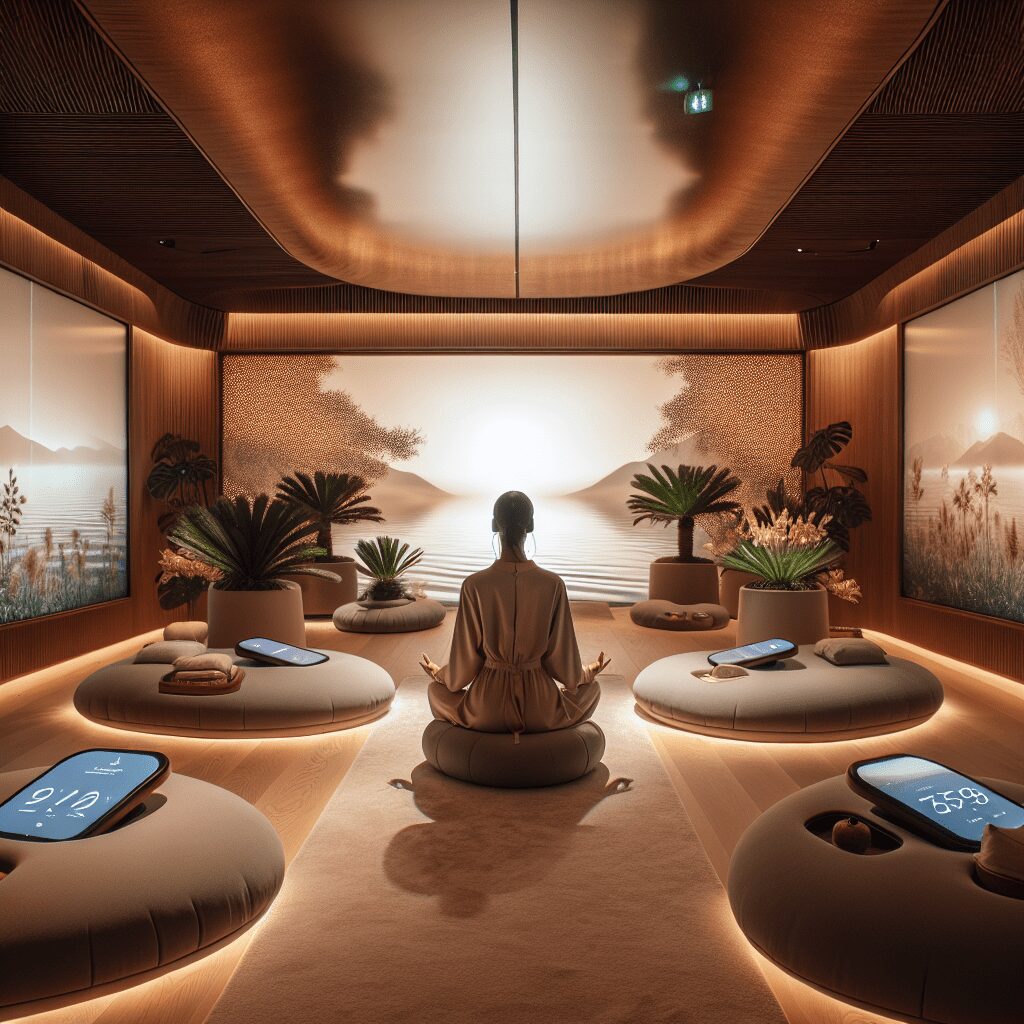
Prioritize your mental well-being daily. Enhance your life by nurturing your mental health with the Smart Meditation app. Break free from stress, alleviate anxiety, and enhance your sleep quality starting today.
Can Anxiety Cause Ocular Migraines?
Unraveling the Mysteries Behind Ocular Migraines and Anxiety
In a fast-paced world where every second counts, it’s no wonder that anxiety has become as common as the smartphone notifications that frequently pop up on our screens. Amid the hustle and bustle, a peculiar health phenomenon has reared its head, blurring the lines between neurological and psychological realms: ocular migraines. Often shrouded in mystery, these visual disturbances can paint our world with an array of lights, shapes, and sometimes, a canvas of temporary vision loss, leaving many to wonder—can anxiety trigger these perplexing episodes?
A Closer Look at Ocular Migraines
Before we dive into the anxious depths of our minds, let’s first decode what ocular migraines are all about. Contrary to the run-of-the-mill headache, an ocular migraine is more of a visual hiccup, often presenting itself as flashes of light, zigzagging patterns, or blind spots. While these episodes can certainly be unnerving, they’re usually short-lived and tend not to pack the painful punch traditional migraines are known for.
The Anxiety Connection: Fact or Fiction?
Now, onto the million-dollar question: Is there a thread connecting the dots between anxiety and ocular migraines? It’s time to sift through the evidence and shed light on this murky matter.
-
Stress as a Trigger: Stress and anxiety often go hand in hand, marching to the beat of the same drum. Both can send our bodies into a tailspin of hormonal responses, notably the release of adrenaline. This “fight or flight” hormone can, in turn, trigger ocular migraines by causing the blood vessels in our brain to constrict and then expand.
-
The Chicken or the Egg Dilemma: While it’s crystal clear that anxiety can take a toll on our physical health, causing a slew of symptoms that range from heart palpitations to, yes, ocular migraines, it’s also true that experiencing these visual disturbances can fuel our anxiety further. It’s a vicious cycle, where one can exacerbate the other, leaving us to ponder—what came first?
-
Neurological Pathways: Delving into the nitty-gritty of our nervous system, research suggests that both anxiety and migraines may trot down similar neurological pathways. This shared route could imply that when anxiety flares up, it might light the fuse for an ocular migraine.
Strategies for Navigating the Stormy Seas
While the connection between anxiety and ocular migraines might seem like a tough nut to crack, fear not. Here are some sage pieces of advice for keeping both at bay:
- Mindfulness and Relaxation Techniques: Incorporating mindfulness practices such as meditation or deep-breathing exercises into your daily routine can help keep anxiety levels in check and, potentially, ward off ocular migraines.
- Regular Physical Activity: Exercise isn’t just a mood booster; it’s also a combatant against stress and anxiety. A brisk walk or a yoga session could be your secret weapon.
- Seek Professional Guidance: If you’re frequently battling anxiety or ocular migraines, reaching out for professional help can make all the difference. A healthcare provider can tailor a treatment plan that’s as unique as you are.
Ocular migraines, with their kaleidoscope of symptoms, can seem like your brain’s version of a party trick gone wrong. And while anxiety can undoubtedly play a role in triggering these episodes, it’s comforting to know that there are steps we can take to ease both our minds and our vision. So, the next time you find yourself caught in the grips of an ocular migraine or anxiety whirlwind, remember: there’s light at the end of the tunnel.





